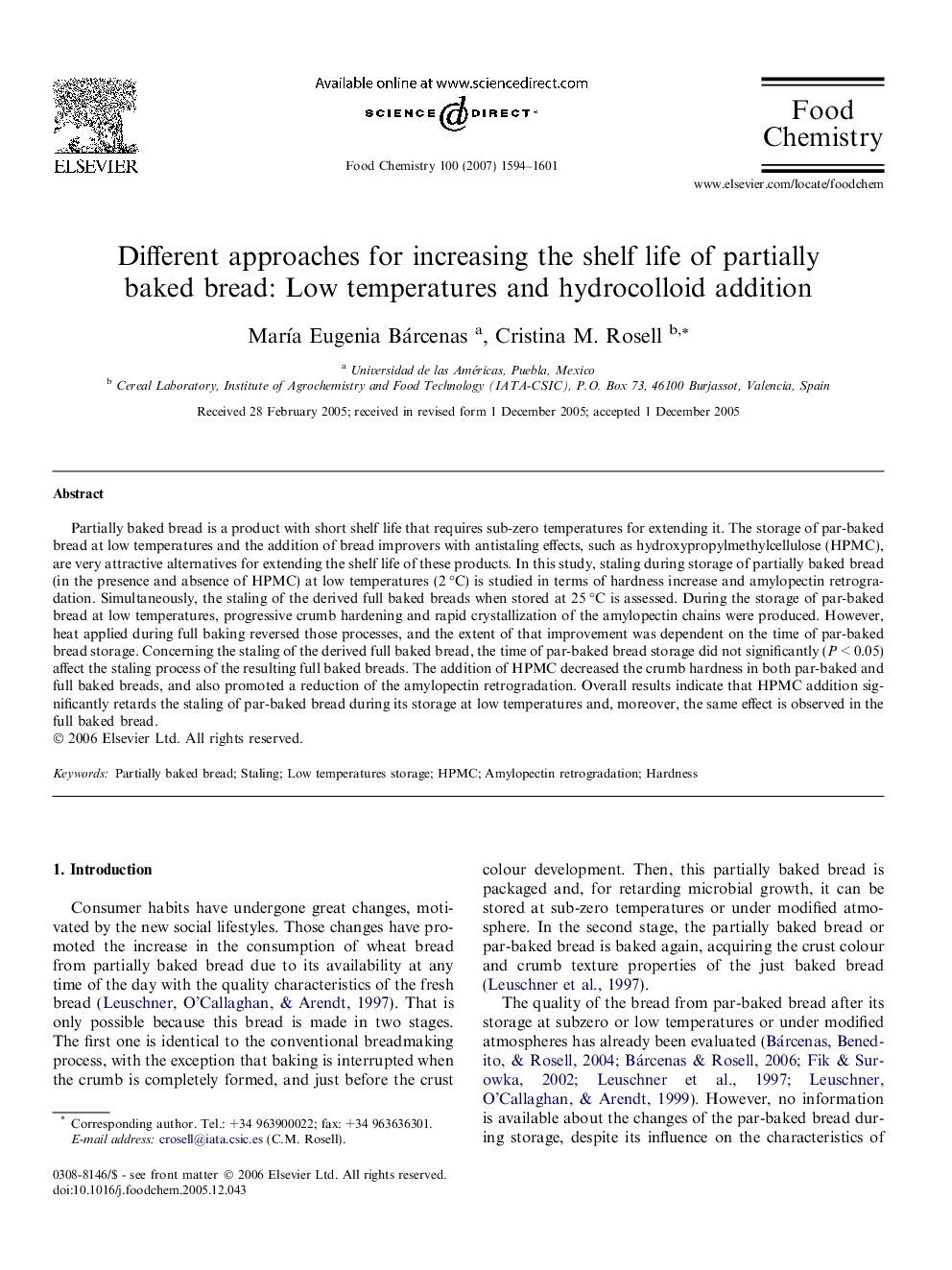| Article ID | Journal | Published Year | Pages | File Type |
|---|---|---|---|---|
| 1190495 | Food Chemistry | 2007 | 8 Pages |
Partially baked bread is a product with short shelf life that requires sub-zero temperatures for extending it. The storage of par-baked bread at low temperatures and the addition of bread improvers with antistaling effects, such as hydroxypropylmethylcellulose (HPMC), are very attractive alternatives for extending the shelf life of these products. In this study, staling during storage of partially baked bread (in the presence and absence of HPMC) at low temperatures (2 °C) is studied in terms of hardness increase and amylopectin retrogradation. Simultaneously, the staling of the derived full baked breads when stored at 25 °C is assessed. During the storage of par-baked bread at low temperatures, progressive crumb hardening and rapid crystallization of the amylopectin chains were produced. However, heat applied during full baking reversed those processes, and the extent of that improvement was dependent on the time of par-baked bread storage. Concerning the staling of the derived full baked bread, the time of par-baked bread storage did not significantly (P < 0.05) affect the staling process of the resulting full baked breads. The addition of HPMC decreased the crumb hardness in both par-baked and full baked breads, and also promoted a reduction of the amylopectin retrogradation. Overall results indicate that HPMC addition significantly retards the staling of par-baked bread during its storage at low temperatures and, moreover, the same effect is observed in the full baked bread.
